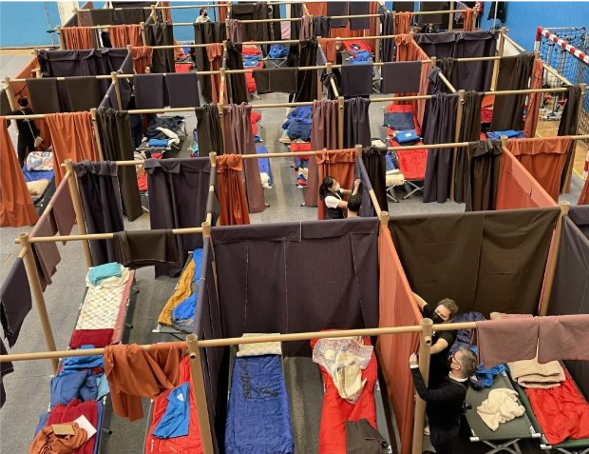SEMINAIRE S1GE
Accueillir face à l’urgence (EN)
 © VAN et Shigeru Ban – Accueil d'urgence - Paris
© VAN et Shigeru Ban – Accueil d'urgence - ParisTHEMATIC
Emergencies are increasing, challenging the systems designed to support the most vulnerable populations. While there is a consensus that transit camps, which stigmatize homeless people and migrants, should be avoided, the Canton of Geneva faces uncertainty about the best strategy to adopt. Should temporary accommodation centers be built quickly and with minimal resources (using industrial materials, inflatable or modular structures that can be easily dismantled, etc.)? Or should the focus be on creating sustainable solutions that go beyond basic needs (shelter, food) by using eco-friendly materials and methods (bio-based materials, local sourcing, reuse, etc.) while still maintaining reversibility?
TEACHING AIMS
This seminar aims to explore and discuss the concepts of reception, emergency, and precariousness at the intersection of spatial and social issues. It helps students gain a deeper understanding of urban-scale migration issues, experiment with architectural and urban solutions for accommodating vulnerable populations, and foster teamwork and creativity.
FORMS OF TEACHING
The seminar integrates a series of lectures with a practical project exercise. Students will engage in preparatory assignments and complete a final synthesis exercise.
Activities include analyzing existing locations to identify contemporary issues (environmental, social, economic) related to the reception conditions of the most vulnerable populations, as well as conducting interviews with local residents.
Educational content development : Pauline Dellacherie, Nicolas Rossier, Philippe Simay
Coaching : Nicolas Rossier, Philippe Simay

